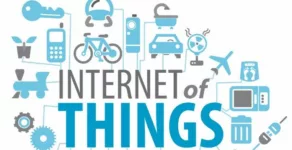The Internet of Things (IoT), which involves increasing inter connectivity of technology, has been described as part of the next industrial revolution. It will bring massive changes in existing patterns around the world. In essence, the IoT is an extension of existing connections among people and computers that includes digitally-connected devices and products.
The Internet of Things is evolving at an incredible rate. The advances are taking place so rapidly that it is impossible to foresee the potential applications of the emerging technology. It is for this reason that many organizations hesitate to invest in technology related to the IoT. Bearing in mind these concerns, the following are some of the potential threats and benefits in this new world.
Benefits
- Through the IoT, automation is made easier so that hazardous environments can be measured and managed without putting people at risk and physical environments can be optimized while controlling energy costs. The end result is more time, increased productivity, greater employee satisfaction, and ultimately higher profit margins.
- Trends can be analyzed more effectively using empirical data gathered through the IoT, resulting in more informed decision-making. Better visibility within your system facilitates the implementation of new business ideas and makes clear where improvement is possible.
- The IoT can maximize efficiency, improve how businesses function, and open doors for new revenue opportunities. As technology becomes increasingly pervasive, the IoT may become a major determining factor behind a business’s success, offering competitive advantages to firms that know how to exploit it.
Threats
- Cyber-crime is a greater problem than ever before, and it naturally impacts the IoT. Companies are being hacked and identities are stolen, costing firms and individuals a fortune. The simple fact is that, in addition to the advantages that they offer, digitally connected things come with many security risks. No matter how perfect a system you try to create, gaps will always exist. In a nutshell, security and privacy will be major concerns of your company going forward.
- The IoT generates all kinds of data, which raises issues of compatibility. Business value is not measured in bytes but in terms of trends and patterns. The complications involved with hundreds of detectors constantly collecting data within a single institution create innumerable complexities and technical challenges. In the absence of a workable plan for analyzing such enormous quantities of data, problems will inevitably arise.
- Given the concerns relating to security and complexity, it is difficult to persuade investors to sink their money into technologies associated with the IoT. The costs and risks even to stage a trial run can be daunting. The scope of change that IoT technology requires can create all kinds of headaches, but a well-planned and well-executed IoT strategy can reap the benefits outlined above.








